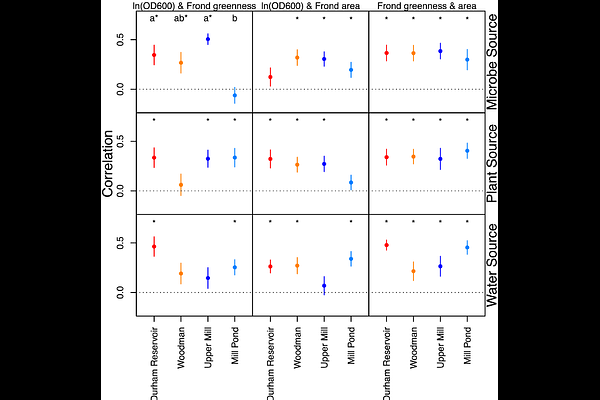Observing adaptation of duckweeds to their local microbiome depends on local pondwater

Observing adaptation of duckweeds to their local microbiome depends on local pondwater
Rose, A.; O'Brien, A.
AbstractPopulations can locally adapt to both the biotic and abiotic factors of an environment, and observing adaptation to biotic factors can sometimes depend on the abiotic conditions, and vice versa. One important aspect of the biotic environment is the microbiome: interactions between microbiomes and their hosts are critical for host fitness and trait expression. Hosts may adapt to their local microbiomes (or vice versa), and hosts may depend on microbiomes for adaptation to the local environment. Using Lemna minor (duckweed) as a model organism, we examined differences in host fitness when grown in local and nonlocal microbiomes and in local and nonlocal water. We experimentally recombined duckweeds, microbes, and water from 4 different ponds around Durham, New Hampshire in well-plate microcosms in a growth chamber. Duckweed, microbe, and water source all affected microbial and duckweed growth, as well as duckweed traits. However, we observed only very weak local adaptation between duckweeds and microbes from their source site, and only very weak local adaptation of duckweeds to water from their source site that together affected frond final area positively, and microbial growth negatively.